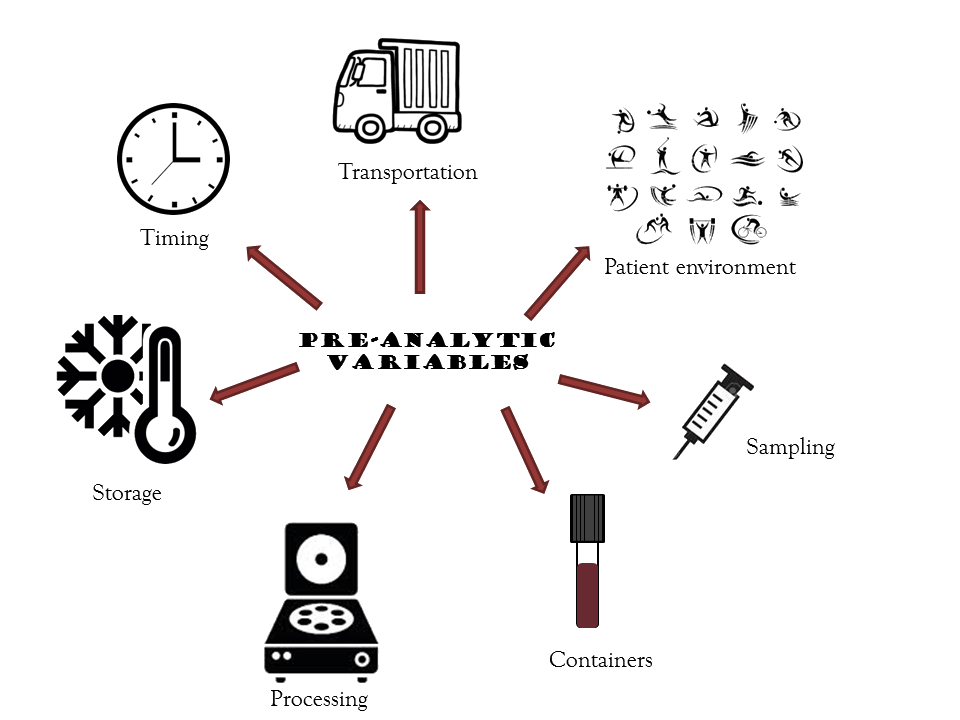EXPERIMENTAL BIOCHEMISTRY & MOLECULAR BIOLOGY (LEBMB)
Director: Dr. Giovanni Lombardi
Research Topics
Pre-analytical phase in biomarkers measurement

Regardless of the method of measurement, the concentration of an analyte in a biological sample depends on biological, analytical, and pre-analytical variability. Indeed, personal uses and lifestyle in the hours before sampling, sample drawing execution, handling, processing, and storing can cause unwanted changes in the concentration of certain types of biomolecules (e.g., degradation, release from cellular components or carrier molecules). Within the flux of samples, from collection to analysis and final reporting, the whole set of decisions and actions (i.e., sample matrix choice, collection, transportation, treatment and storage) taken during the pre-analytical phase has the biggest impact on the analytical output. Errors in this phase (70% of all errors) are carried over to the analytical phase affecting measurement accuracy and, ultimately, leading to uncertainty about results. While the pre-analytical phase is critical in routine laboratory medicine, its importance in research and clinical trials is often underestimated.
Sampling-associated variables are: patient preparation (timing, environmental conditions, posture), sample collection (identification and labeling, type of disposables, containers, drawing order, phlebotomy procedure, contamination), sample transportation (length, temperature, pneumatic tube systems), sample preparation (centrifugation conditions, aliquot preparation), sample storage (length, temperature, freeze/thaw cycles).
Subject-associated variables are: drug administration (timing of drawing and treatments), physical activity (to be avoided in the 48–24h before sampling), and menstrual cycle. Likewise, uncontrollable subject-related factors that should be critically considered are: age and gender (e.g., menopause), ethnicity, usual medications (e.g., antihypertensive), dietary supplements, comorbidities/diseases, and circannual/seasonal rhythms.
Our studies are addressed at investigating different set of pre-analytical settings in order to define the best conditions for measuring sensible analytes as newly identified molecules (e.g., miRNAs, myokine, adipokines).
